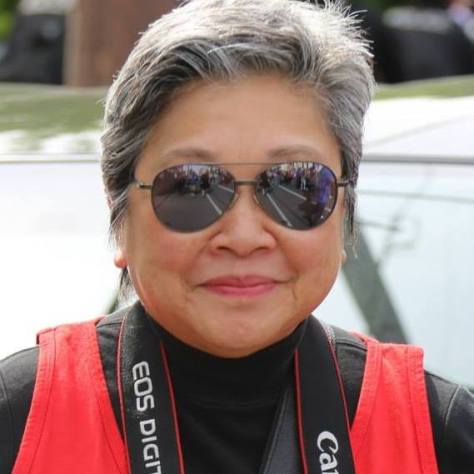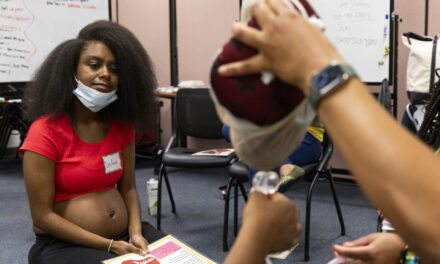by Sharon Maeda
There’s no such thing as a post-racial society, as was proffered when Barack Obama was elected president in 2008. And, despite a recent increase in racial hate crimes, vandalism, and harassment of BIPOC communities, some things have changed for the better. We no longer have to wring our hands and hope for the best when a person of our own racial or ethnic group is not ready for prime time, but we feel compelled to vote for them out of ethnic solidarity anyway.
We can vote for people who we know have the integrity and commitment to further justice for our communities during these fragile times. We can vote for the person who most closely shares our values, who we can trust, who is endorsed by those we respect, and who we know will listen when we bring forward important issues, policies, and crises. No longer do we have to vote for someone who “looks like us.”
As a self-described political junkie, I learned long ago that supporting — or not — a candidate based on one community, one issue, or one statement is shortsighted. Part of our responsibility as voters is doing sufficient research to be confident the person we vote for has the integrity to do the right thing when under pressure or when totally unforeseen issues appear. Two years ago, who could have known that the struggles of women and our allies that were fought over 50 years ago would become issues again. From civil rights to a woman’s right to choose, we’ve been bombarded by major issues we thought had been legislated and secured long ago.
Locally, policies and programs related to education, gentrification, hate crimes, homelessness, and the Seattle Police Department — to name a few — will take twists and turns before elected officials and agencies implement solid solutions. We can never predict what issues will occur once the person is in office, nor how the person might succumb to pressures and vote in ways we could not have imagined. But that’s why there are terms and elections. If we don’t like what an elected official has done, we can vote them out the next round. That’s the way democracy works.
This year, diversity rises to the top, because we have candidates of color running against each other. There’s no longer the unofficial “Asian seat” or “Black seat” kind of positioning that was the case back when Seattle City Councilmembers Sam Smith and Norm Rice or County Councilmembers Ruby Chow or Ron Sims were in office. I remember the frustration and concern raised in Black and Asian communities alike when Gary Locke and Norm Rice faced off against each other for governor. Many of their friends and supporters were the same people in both communities. Although friends with Locke, I had been friends with Rice and his wife, Dr. Constance Rice, since our University of Washington grad school days. I volunteered on Rice’s campaign and was criticized for not supporting the Asian candidate. I’ve thought a lot about racial and ethnic voting ever since.
Today, in King County alone, there are no less than eight races where both candidates are People of Color, from Auburn (City Council Position 5: Robyn Mulenga versus Clint Taylor) to Renton (City Council Position 5: Ed Prince versus Marvin Rosete), and many more running in various other races.
Here in the South End, two major races have Women of Color running against each other, and the voters have a real choice.
King County Council
Ruby Chow was the pioneer who first won the council election in 1974, but only once there was more than one Person of Color on the council at the same time. Ron Sims and Larry Gossett served at the same time for two years before Sims was appointed King County executive when Executive Gary Locke became governor.
For the most populated county in the state, and home to the only majority-minority congressional district in Washington, that fact is a bit shocking. Councilmember Girmay Zahilay, and Larry Gossett before him, has been the only Person of Color on the council in recent years.
This year, in King County Council District 8, Seattle City Councilmember Teresa Mosqueda versus Burien Mayor Sofia Aragon ensures that a Woman of Color will join Zahilay, who is running unopposed. The district covers a large part of South Seattle and surrounding areas, from West Seattle to First Hill and Capitol Hill, through downtown Seattle, Pioneer Square, the Chinatown-International District, Little Saigon, Georgetown, SoDo, and South Park, over to White Center, Tukwila, Burien, and Maury and Vashon Islands. Voters should look at which of these women can best serve this diverse district, and not just be the first Filipina or the first Latina.
Aragon, a registered nurse, is a good person who has been engaged in advocating for nurses in Olympia, and she has been a Burien Councilmember and is its current mayor. She recently voted in favor of a ban on camping on city property. She is endorsed by former Gov. Gary Locke and State Reps. Mia Gregerson and Eileen Cody. She was endorsed by The Seattle Times.
Mosqueda is a longtime advocate for justice who has worked as a community and health advocate and labor organizer and is currently a Seattle City Councilmember. She is endorsed by most labor unions and community/ethnic PACs (Political Action Committees that are allowed to endorse candidates). She is endorsed by The Stranger.
Were Aragon running in a different race or not against Mosqueda, I would feel comfortable voting for her. But Mosqueda’s overwhelming decades of progressive work for justice makes it an easy choice. I will vote for Teresa Mosqueda.
Seattle City Council
In contrast to the King County Council, Seattle has had much more diversity on the City Council. Beginning with Wing Luke in 1962, Sam Smith in 1967, and Liem Tuai in 1969, 18 People of Color have been elected to the City Council. In November, the top two candidates are incumbent Tammy Morales and newcomer Tanya Woo. Thus, a Woman of Color will hold the District 2 seat. Voters have a real choice with dramatic differences between these two candidates.
Morales is a progressive Jewish Latina who has brought $250 million of investments to the district and has worked to address homelessness, racism in Black and Asian American communities, the need for more mental health services, and gentrification on a policy level. She is endorsed by Congresswoman Pramila Jayapal; many labor unions; former elected officials Velma Veloria, Mona Das, and Larry Gossett; and current King County Councilmember Girmay Zahilay. She has been endorsed by The Stranger.
Woo is a Chinese American small-business owner and former local TV journalist who became an advocate for the Chinatown-International District during the restoration of her family’s building after a fire and the COVID-19 crisis. She has improved her knowledge of issues during the months of the campaign, but still lacks a broader understanding of the very diverse District 2. She is endorsed by former Gov. Gary Locke, elected officials Sharon Tomiko Santos and Bob Hasegawa, and the Affordable Housing Council of the Master Builders Association.
Full disclosure: I can’t vote in this race. I live off Rainier Avenue on the other side of the District 2–District 3 border. I strongly believe in what the former Parkland student leader David Hogg has named his anti-gun advocacy organization, Leaders We Deserve. The people of District 2 deserve a City Councilmember who practices democracy. I grew up learning that coming of age requires voter registration and participation as more important than getting a driver’s license because, as happened to my family and 120,000 people of Japanese ancesttry during WWII, “they might put us back into concentration camps if we don’t pay attention.” Tanya Woo, as reported in The Stranger, did not register to vote until she was 37 years old, saying she was too busy to vote. To me, that’s disqualifying regardless of recent good work in one neighborhood.
So, in both the King County and Seattle City Council races, I am supporting two awesome progressive Women of Color, who happen to be running against two Asian American women, because Teresa Mosqueda and Tammy Morales are proven leaders we deserve and need to ensure our democracy. And, I will continue to recruit awesome young AA&NH/PI and other BIPOC men and women to run for office in future elections.
The South Seattle Emerald is committed to holding space for a variety of viewpoints within our community, with the understanding that differing perspectives do not negate mutual respect amongst community members.
The opinions, beliefs, and viewpoints expressed by the contributors on this website do not necessarily reflect the opinions, beliefs, and viewpoints of the Emerald or official policies of the Emerald.
Sharon Maeda is a retired media manager and social justice activist. She has written for the International Examiner, as well as the Emerald. She is a near-perfect voter and was a volunteer for Bobby Kennedy’s presidential campaign and hundreds of local, state, and national candidates since.
📸 Featured Image: (Photo: Jaidev Vella)
Before you move on to the next story … The South Seattle Emerald is brought to you by Rainmakers. Rainmakers give recurring gifts at any amount. With over 1,000 Rainmakers, the Emerald is truly community-driven local media. Help us keep BIPOC-led media free and accessible. If just half of our readers signed up to give $6 a month, we wouldn't have to fundraise for the rest of the year. Small amounts make a difference. We cannot do this work without you. Become a Rainmaker today!





